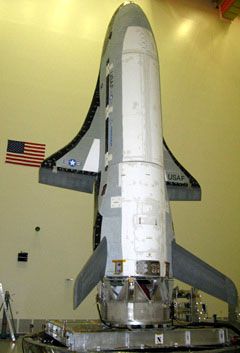
U.S. Air Force
THIS EVENING, an Atlas V rocket carrying an experimental U.S. Air Force spaceplane is scheduled to launch from Cape Canaveral Air Force Station in Florida. Not much is known about its mission, but what is known is that the X-37B Orbital Test Vehicle (OTV) was originally the brainchild of NASA before it was taken over by the USAF in 2006 after NASA scrapped the program because of a lack of funding.
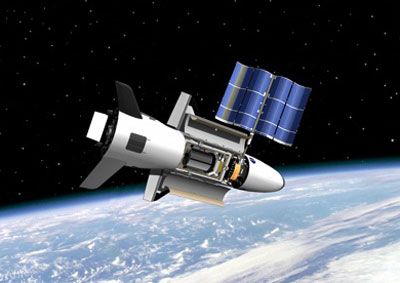
Boeing Phantom Works
Other things that are known about the X-37B is that it is designed to stay in orbit for up to 270 days (or 9 months), receive electricity from a small solar array that will be unfurled from the vehicle once it is in space (as opposed to running on fuel cells like those used on NASA's space shuttle orbiters), test out surveillance and satellite-repair techniques and possibly carry special weapons, most likely nuclear, that it can deploy over targets in North Korea and Iran. Just kidding about that 'special weapons' part... Or am I?
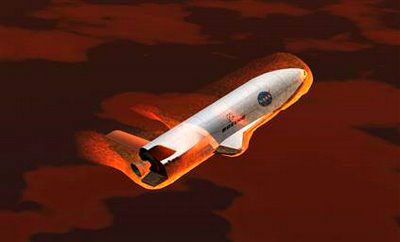
NASA
At the end of its flight, the OTV will glide in for a touchdown at Vandenberg Air Force Base in California or the space shuttle’s back-up landing site at Edwards Air Force Base (also in California). What the USAF does next with the OTV remains to be seen. Actually, click here for more details on the X-37B's future.
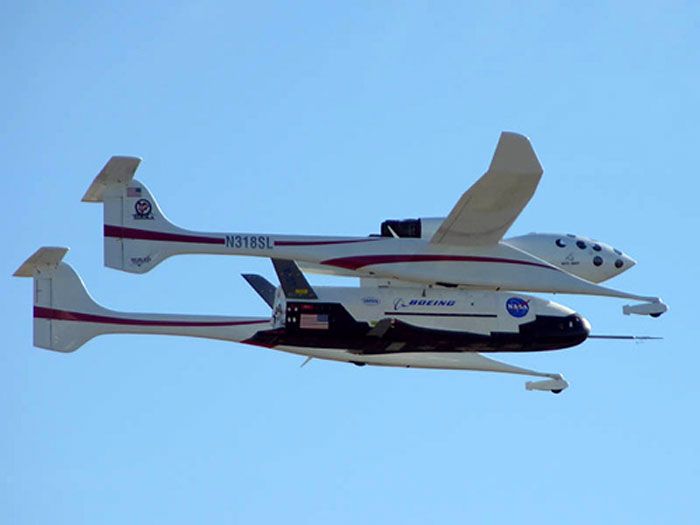
NASA
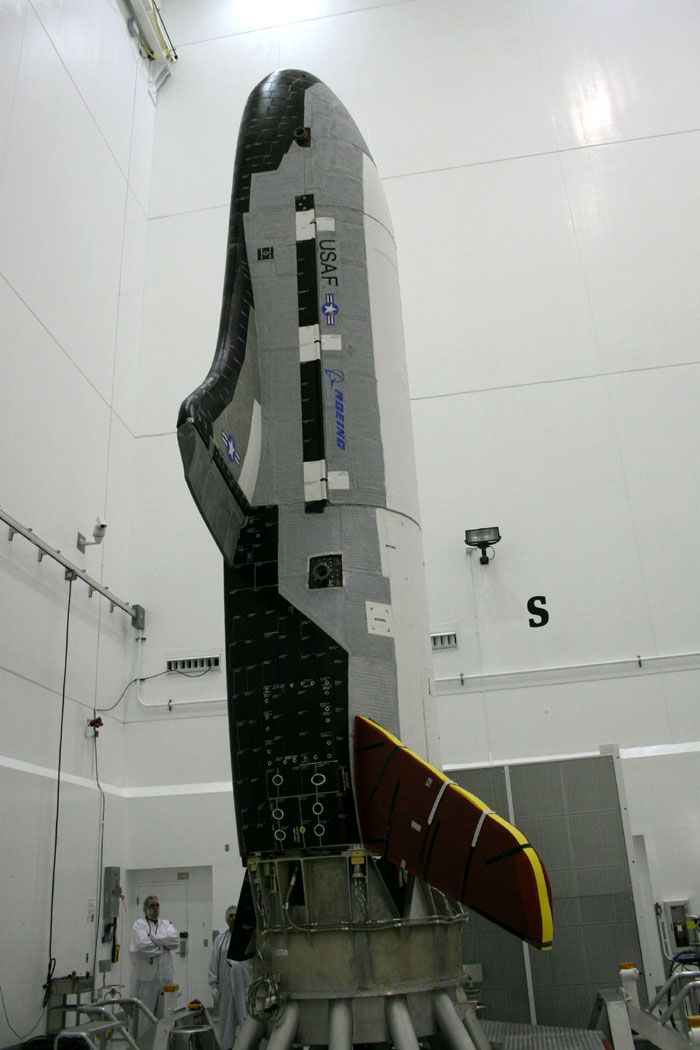
Boeing Phantom Works
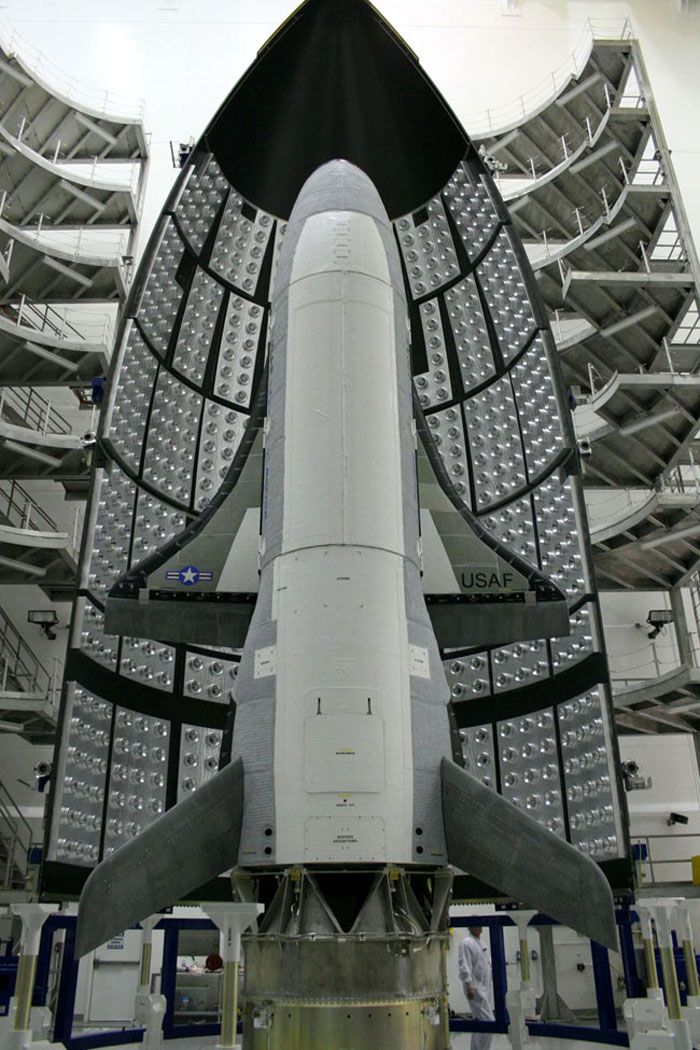
USAF
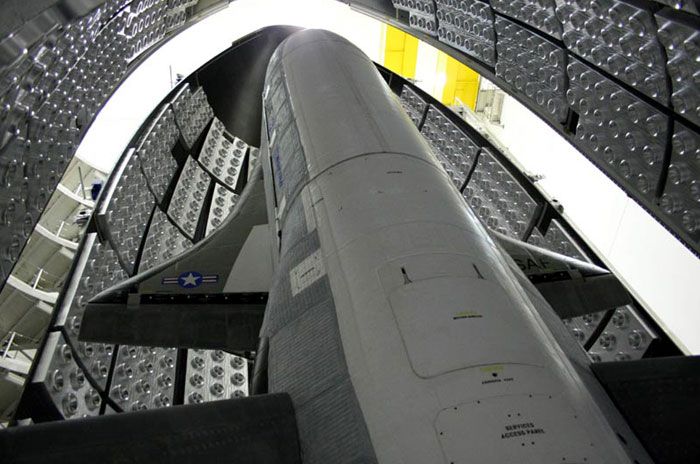
USAF
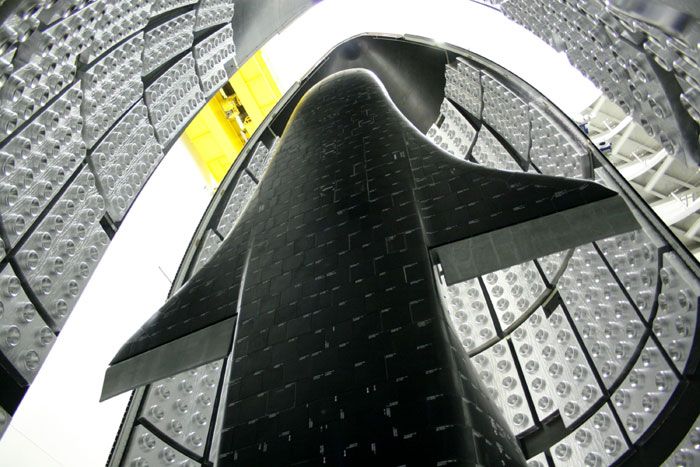
Boeing Phantom Works
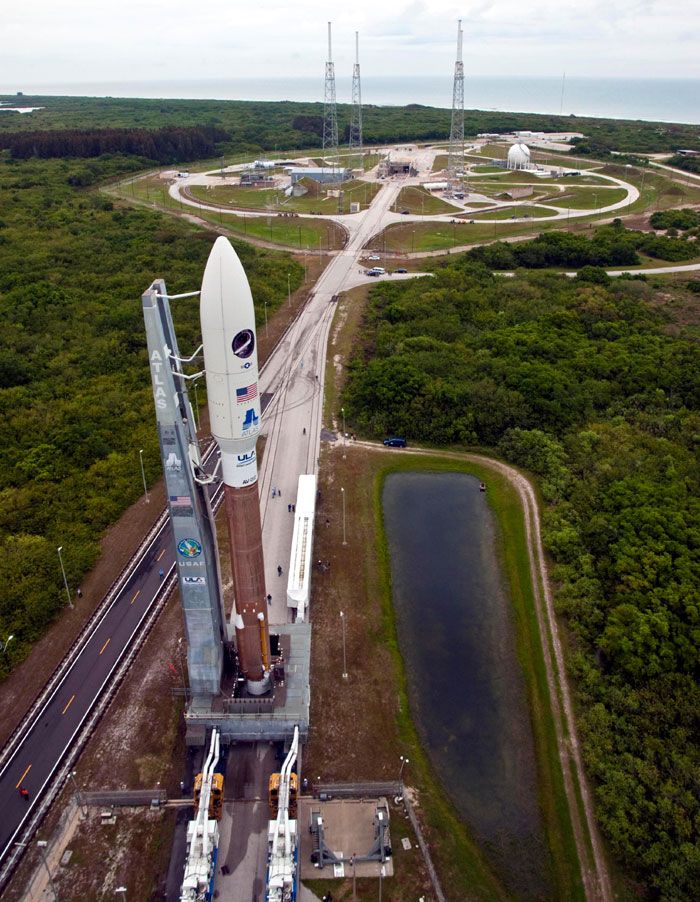
Pat Corkery / United Launch Alliance
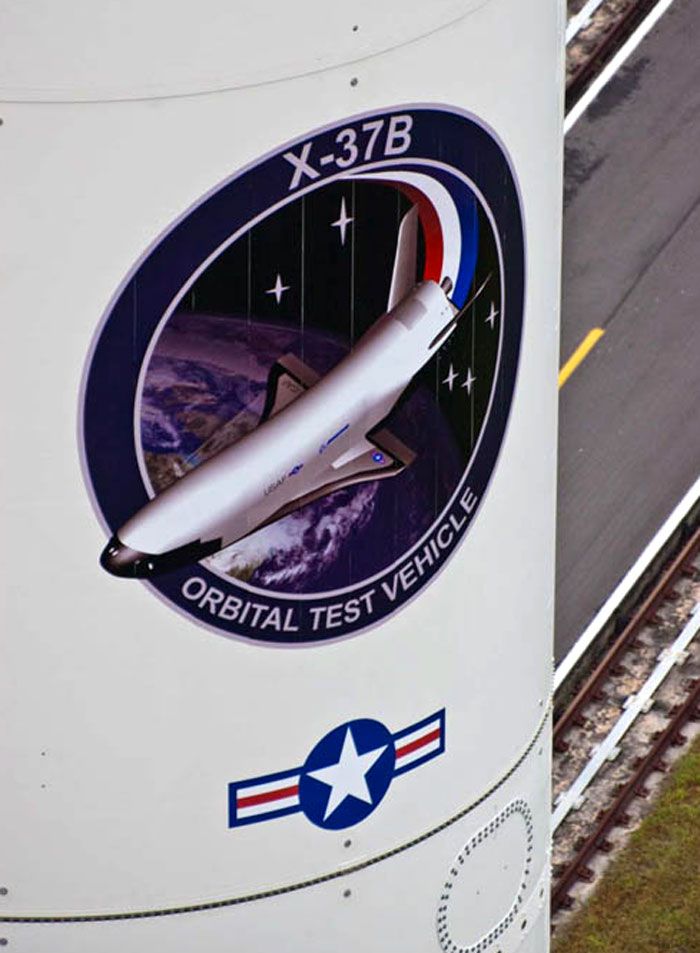
Pat Corkery / United Launch Alliance
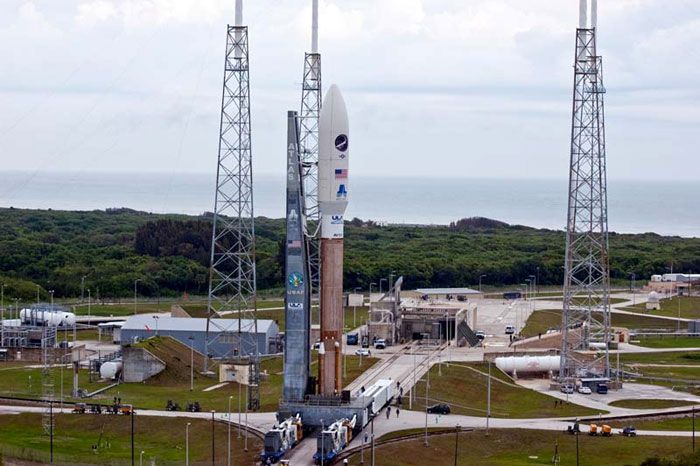
Pat Corkery / United Launch Alliance
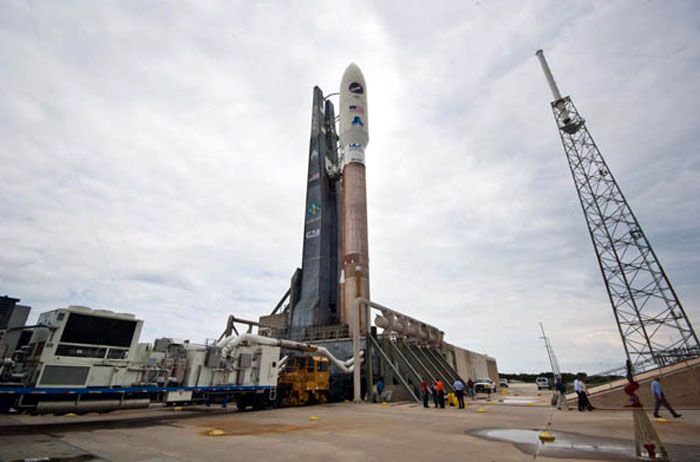
Pat Corkery / United Launch Alliance
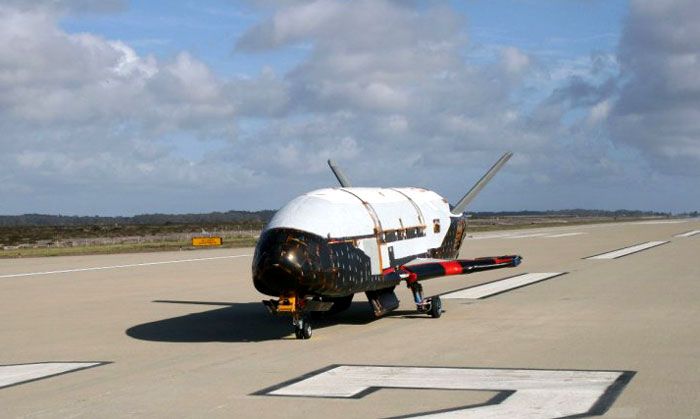
USAF

No comments:
Post a Comment